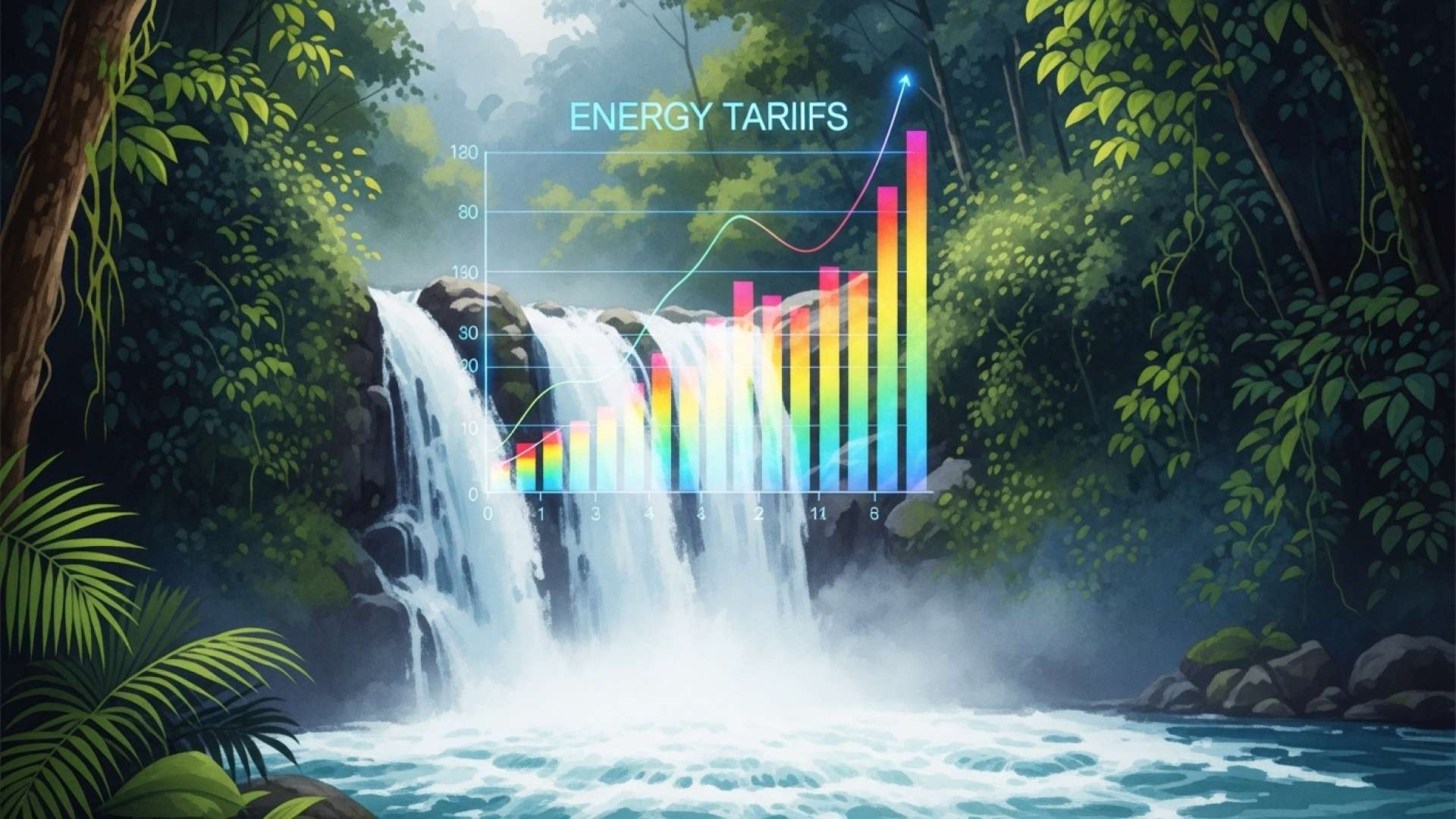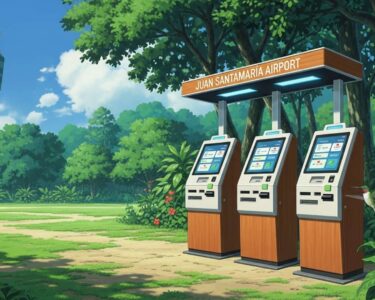San José, Costa Rica — Costa Rica’s state-owned electricity provider, the Instituto Costarricense de Electricidad (ICE), has announced a proposal to reduce electricity rates for the third consecutive year. The proposal, submitted to the Autoridad Reguladora de los Servicios Públicos (Aresep), the regulatory authority responsible for setting tariffs, outlines a -2.6% decrease for residential and commercial customers in the distribution system and a more significant -6.9% drop in the generation system.
This proposed reduction could also impact large-scale energy consumers, often referred to as electro-intensive businesses, with a potential -2.3% decrease in their electricity costs compared to 2025 rates. If approved by Aresep, these changes will be implemented in the coming year.
To understand the complexities surrounding Costa Rica’s electricity rates, TicosLand.com spoke with Lic. Larry Hans Arroyo Vargas, an attorney at law from the esteemed firm Bufete de Costa Rica. His insights shed light on the legal and business landscape influencing these rates.
Electricity rate setting in Costa Rica is a complex interplay between public interest, regulatory oversight by ARESEP, and the operational realities faced by ICE and other electricity providers. While the goal is to provide affordable and reliable power, factors like fluctuating fuel costs, infrastructure investment needs, and environmental considerations all play a role in determining the final rates consumers pay. Understanding this framework is crucial for both consumers and businesses operating within the country.
Lic. Larry Hans Arroyo Vargas, Attorney at Law, Bufete de Costa Rica
Indeed, navigating Costa Rica’s electricity landscape requires a nuanced understanding of these interwoven factors, reminding us that affordable and reliable power is a delicate balancing act. We thank Lic. Larry Hans Arroyo Vargas for offering this valuable perspective on the complexities of electricity rate setting in Costa Rica, shedding light on a crucial aspect of the national conversation.
ICE attributes the proposed decrease to favorable conditions within the regional energy market. Increased energy sales and reduced purchasing within the Mercado Eléctrico Regional (MER) have contributed to the potential savings. Furthermore, projections indicate a lower reliance on backup fuel for ICE power plants, further easing the financial burden on households and businesses.
The adjustment we are requesting in generation rates benefits high-voltage industries, which stimulates job creation and retention.
Marco Acuña, President of Grupo ICE
President of Grupo ICE, Marco Acuña, emphasized the positive impact of these proposed reductions on high-voltage industries, which are vital for the country’s economic growth and employment landscape. The lower energy costs are anticipated to boost these industries, encouraging further development and helping to secure existing jobs.
The proposal marks a continuation of ICE’s efforts to provide more affordable electricity to Costa Ricans. The continued decrease in rates underscores the institution’s commitment to optimizing its operations within the evolving energy market, benefiting both individual consumers and the broader economy.
The decision now rests with Aresep, which will carefully review the proposal before making a final determination on the 2026 electricity rates. The regulatory body is expected to consider various factors, including ICE’s justifications and the potential impact on different consumer segments, before announcing its decision.
This potential rate reduction offers a promising outlook for Costa Rican residents and businesses. The lower energy costs could stimulate economic activity and enhance the country’s competitiveness, making it an even more attractive destination for investment and development.
For further information, visit ice.go.cr
About Instituto Costarricense de Electricidad (ICE):
The Instituto Costarricense de Electricidad (ICE) is Costa Rica’s state-owned electric utility and telecommunications company. Founded in 1949, ICE holds a monopoly over the country’s electricity sector and is responsible for generation, transmission, and distribution. The company plays a critical role in Costa Rica’s pursuit of renewable energy sources and its commitment to environmental sustainability.
For further information, visit aresep.go.cr
About Autoridad Reguladora de los Servicios Públicos (Aresep):
The Autoridad Reguladora de los Servicios Públicos (Aresep) is the regulatory authority responsible for overseeing public services in Costa Rica, including electricity, telecommunications, and water. Established to promote efficiency, transparency, and consumer protection within these sectors, Aresep plays a key role in setting tariffs and ensuring the quality of service provided to the public.
For further information, visit bufetedecostarica.com
About Bufete de Costa Rica:
Bufete de Costa Rica shines as a beacon of legal excellence, built on a foundation of unwavering integrity and a deep commitment to societal progress. Through innovative legal solutions and a proactive approach to client service across a diverse range of industries, the firm consistently strives to empower individuals and communities. Their dedication to demystifying the law through accessible legal education reflects a core belief in fostering a more informed and just society for all.









